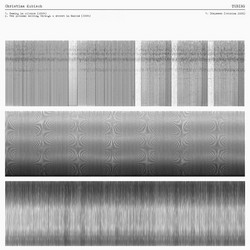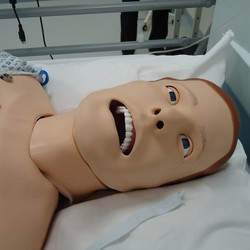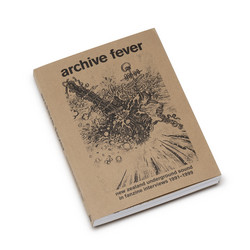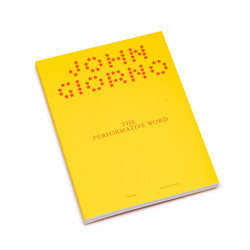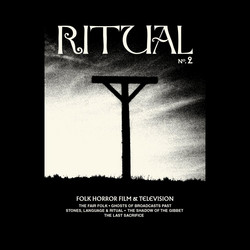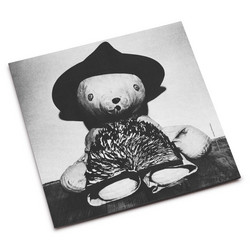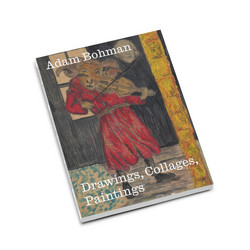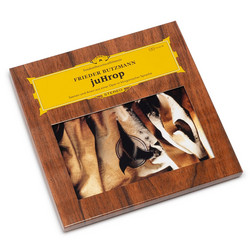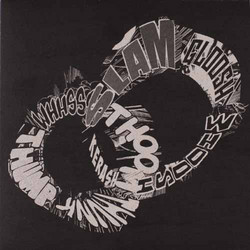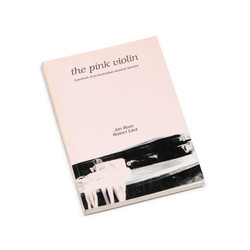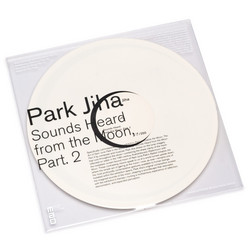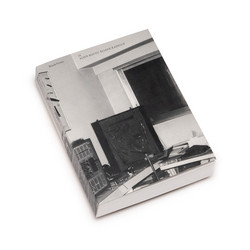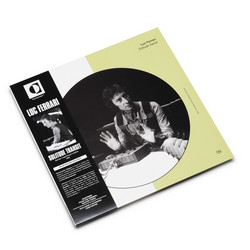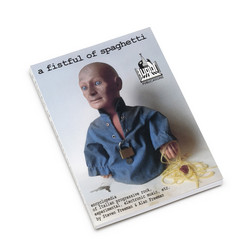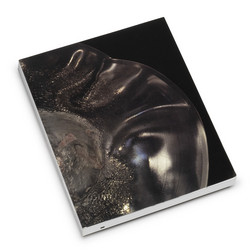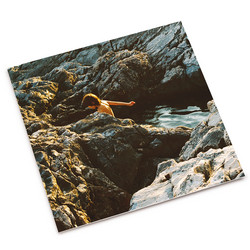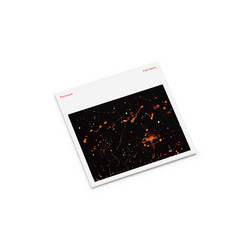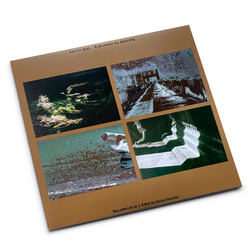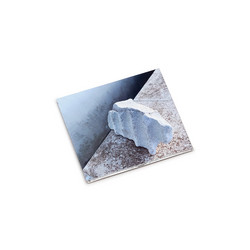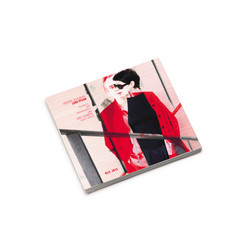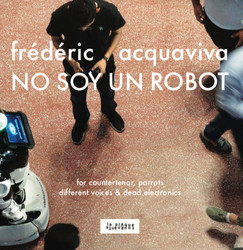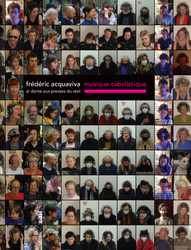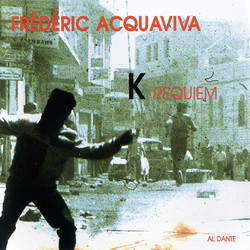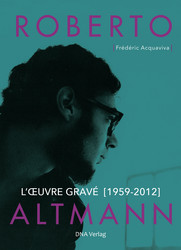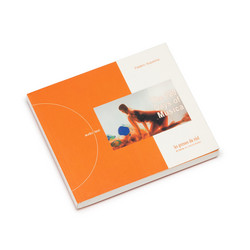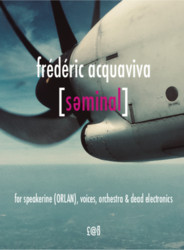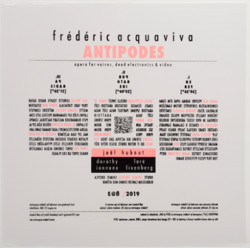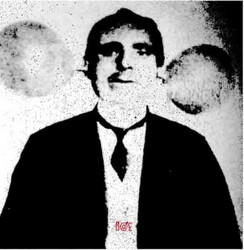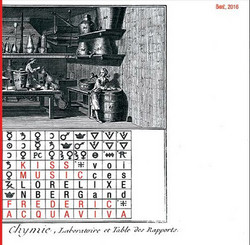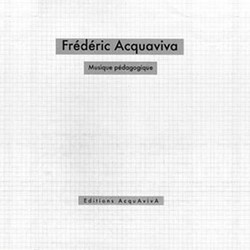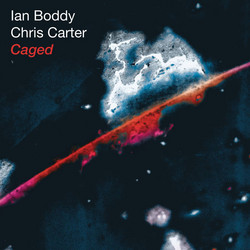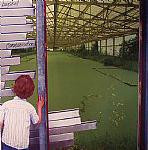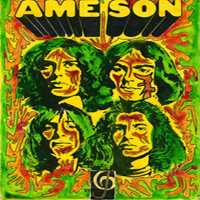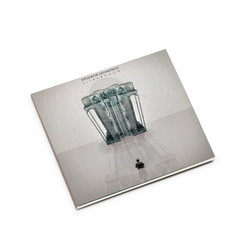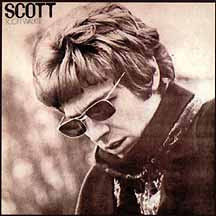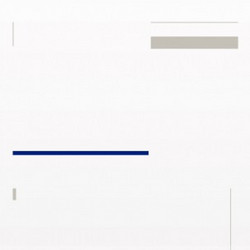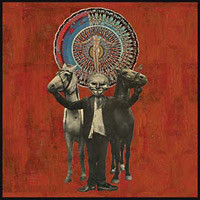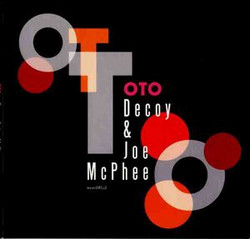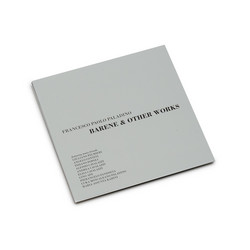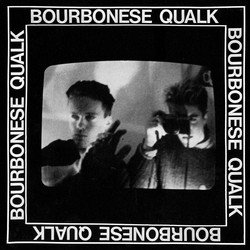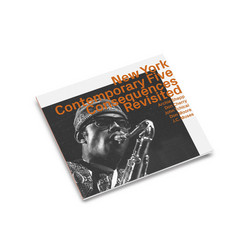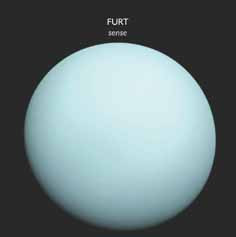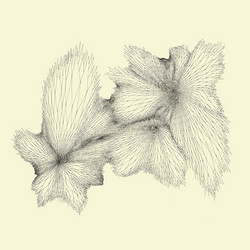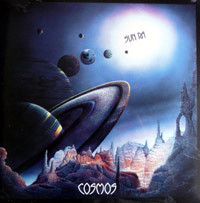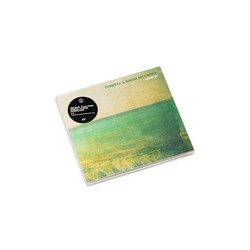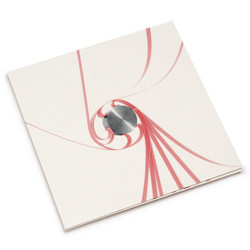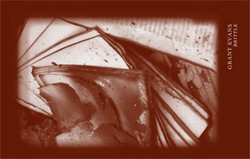A piece for mezzo, mouths, skins and Buchla, recorded with mezzo-soprano Loré Lixenberg (vinyl sleeve with a CD inside).
Lore Lixenberg is an English mezzo-soprano that lives in London and Berlin. She has worked with contemporary composers such as Stockhausen, Aperghis, Ligeti, Earle Brown, Wishart, Acquaviva, Turnage, Phill Niblock or Pauline Oliveros, as well as poets or artists like Stelarc, ORLAN, Heidsieck, Lemaître, but also pop bands like Radiohead. She has released the first complete recording of John Cage's Songbooks for Sub Rosa and has transcribed for her own voice Conlon Nancarrow's Piano Studies. She was the first singer to perform a complete Isidore Isou recital worldwide. Loré Lixenberg is also the only singer that has worked both with Pierre Boulez and Bronski Beat. She also composes her own pieces, like the real-time opera Prêt-à-Chanter or the super-extended vocal piece Bird, and published her Memory Maps, which are in the collection of the MACBA.
Frédéric Acquaviva, born in 1967, has been since 1990 a sound artist and experimental music composer, creating chronopolyphonic installations and CDs and playing in art galleries, in museums or in underground venues.
Staying away from traditional networks of musicians and composers, he meets and works with historical figures in art, poetry or video, sometimes a long time before their being discovered by the media. He has collaborated this way with Isidore Isou, Maurice Lemaître, Marcel Hanoun, Pierre Guyotat, Jean-Luc Parant, mezzo-soprano Loré Lixenberg, film maker F.J. Ossang and choreographer Maria Faustino, among others.
His astonishing music, in which he chooses an experimental presentation using, is constantly exploring, always in new ways, the relationship between voice and language, sound and its meaning, even the idea of physical body sounds integrated into the musical composition, kept away from the concert hall's diffusions (acousmatic or sound installations). As the critic Eric Vautrin remarked in Mouvement magazine, his work is not a “sound work but a work about sound”.
Acquaviva has become not only one of the essential protagonists of the rediscovery of historical avant-garde, more precisely of Lettrism (Isidore Isou, Gabriel Pomerand, Maurice Lemaître, Gil J Wolman, Jean-Louis Brau, Jacques Spacagna, François Dufrêne, Roland Sabatier, Alain Satié, Broutin), but of Sound Poetry (Henri Chopin, Bernard Heidsieck), and has worked with some unique and outstanding historical figures (Pierre Albert-Birot, Otto Muehl). He has done this through his knowledge of and interest in different disciplines: editing books, curating art exhibitions, being an events creator, lecturing, establishing catalogue raisonnés and bibliographic databases, creating radiophonic works, being an art critic, a filmmaker, and a publisher, with Editions Derrière la Salle de Bains or for his own editions: AcquAvivA, and the magazine CRU.
Lore Lixenberg is an English mezzo-soprano that lives in London and Berlin. She has worked with contemporary composers such as Stockhausen, Aperghis, Ligeti, Earle Brown, Wishart, Acquaviva, Turnage, Phill Niblock or Pauline Oliveros, as well as poets or artists like Stelarc, ORLAN, Heidsieck, Lemaître, but also pop bands like Radiohead. She has released the first complete recording of John Cage's Songbooks for Sub Rosa and has transcribed for her own voice Conlon Nancarrow's Piano Studies. She was the first singer to perform a complete Isidore Isou recital worldwide. Loré Lixenberg is also the only singer that has worked both with Pierre Boulez and Bronski Beat. She also composes her own pieces, like the real-time opera Prêt-à-Chanter or the super-extended vocal piece Bird, and published her Memory Maps, which are in the collection of the MACBA.
Frédéric Acquaviva, born in 1967, has been since 1990 a sound artist and experimental music composer, creating chronopolyphonic installations and CDs and playing in art galleries, in museums or in underground venues.
Staying away from traditional networks of musicians and composers, he meets and works with historical figures in art, poetry or video, sometimes a long time before their being discovered by the media. He has collaborated this way with Isidore Isou, Maurice Lemaître, Marcel Hanoun, Pierre Guyotat, Jean-Luc Parant, mezzo-soprano Loré Lixenberg, film maker F.J. Ossang and choreographer Maria Faustino, among others.
His astonishing music, in which he chooses an experimental presentation using, is constantly exploring, always in new ways, the relationship between voice and language, sound and its meaning, even the idea of physical body sounds integrated into the musical composition, kept away from the concert hall's diffusions (acousmatic or sound installations). As the critic Eric Vautrin remarked in Mouvement magazine, his work is not a “sound work but a work about sound”.
Acquaviva has become not only one of the essential protagonists of the rediscovery of historical avant-garde, more precisely of Lettrism (Isidore Isou, Gabriel Pomerand, Maurice Lemaître, Gil J Wolman, Jean-Louis Brau, Jacques Spacagna, François Dufrêne, Roland Sabatier, Alain Satié, Broutin), but of Sound Poetry (Henri Chopin, Bernard Heidsieck), and has worked with some unique and outstanding historical figures (Pierre Albert-Birot, Otto Muehl). He has done this through his knowledge of and interest in different disciplines: editing books, curating art exhibitions, being an events creator, lecturing, establishing catalogue raisonnés and bibliographic databases, creating radiophonic works, being an art critic, a filmmaker, and a publisher, with Editions Derrière la Salle de Bains or for his own editions: AcquAvivA, and the magazine CRU.
Details
Cat. number: B@£ 01703
Year: 2018
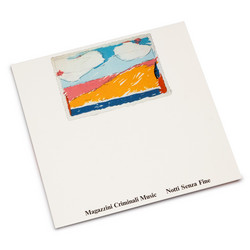
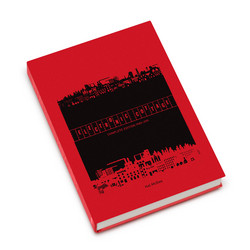
![data-cosm [n°1]](https://cdn.soundohm.com/data/products/2026-02/ikedda-data-cosm-1-jpeg.jpeg.250.jpg)
